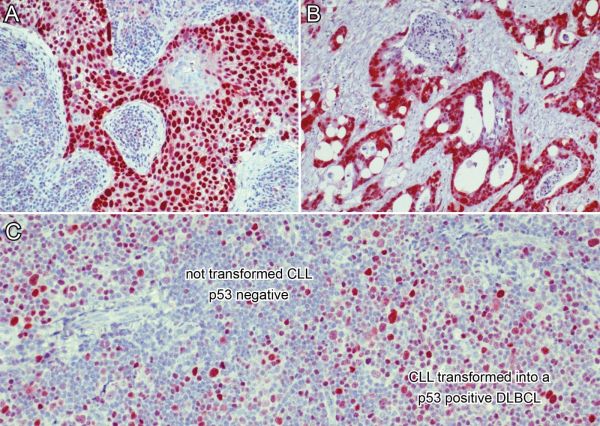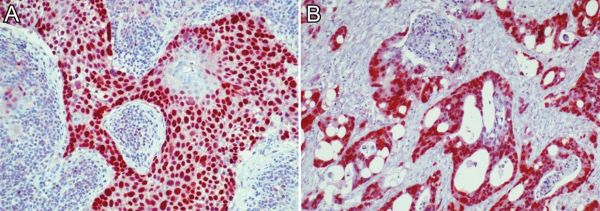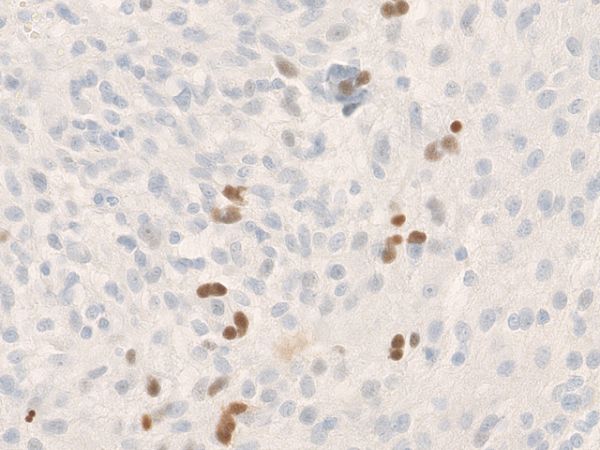Anti-p53 (Hu) from Mouse (Clone: CC53) – unconj.



-
Overview
SKU DIA-530-P05 Specificity Species Reactivity Immunogen Host Species Isotype Clone Clonality (Mono-/Polyclonal) Application Immunohistochemistry (IHC), Immunohistochemistry (Paraffin-embedded Sections), Western Blot
Conjugation Dilution Format 0.05% NaN3, 2% BSA, in PBS (pH 7.4), lyophilisate, purified antibody (from culture supernatant)
Product line / Topic Neurobiology, Tumor Marker / Biology, Tumorsuppressors & Cell Cycle
Intended Use Temperature - Storage Temperature - Transport Search Code Manufacturer / Brand Uniprot_ID Gene_ID Alias Antigen NY-CO-13, Cellular Tumor Antigen P53, LFS1, Li-Fraumeni Syndrome, P53, P53 Tumor Suppressor, TP53, Transformation related protein 53, TRP53, Tumor Protein, Tumor Protein p53, Tumor Suppressor P53
- Datasheets and Downloads
-
Additional Product Information
The p53 tumor suppressor gene has been found to contain mutations in over 50% of human cancers. Many mutations of the p53 gene have been associated with malignant transformation in a wide variety of human tumors. p53 immunostaining is of use in demonstrating accumulation of p53 protein, which occurs in a high frequency in a wide variety of transformed cells. Anti-p53 Tumor Suppressor Protein antibody recognizes a 53 kDa phosphoprotein, identified as p53 suppressor gene product. It reacts with the mutant as well as wild form of p53. Positive nuclear staining with this antibody has been shown to be a negative prognostic factor in Breast carcinoma, Lung carcinoma, Colorectal, and Urothelial carcinoma. p53 positivity has also been used to differentiate Uterine serous carcinoma from endometrioid carcinoma as well as to detect Intratubular germ cell neoplasia. Moreover antibody clone CC53 helps to detect single invading astrocytoma-cells.
-
Images

Abb1_IHCA-C_p53_DIA-530 
DIA-530_Clone_CC53_anti-p53 
p53 CNS
Contact
